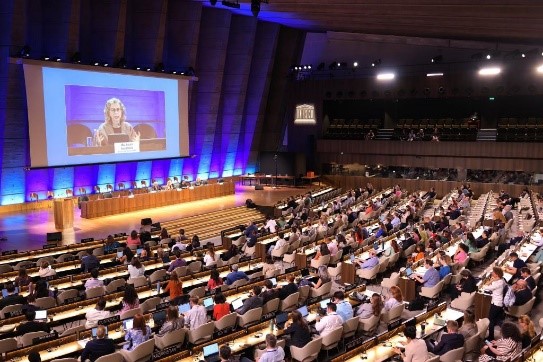Free Courses Sale ends Soon, Get It Now


Free Courses Sale ends Soon, Get It Now



Disclaimer: Copyright infringement not intended.
Context
About
Details pertaining to the Zero Draft Treaty
The Life Cycle of plastic and its stakeholders
|
Life cycle phase |
Stakeholders |
|
Extraction / Sourcing of raw materials |
Oil and gas industry |
|
Chemical |
Petrochemical refineries/ chemical manufacturers |
|
Material |
Product producers / brand owners / consumers |
|
Dematerialisation (waste management) |
Waste workers / local governments |
The hits
The zero-draft talked about:
The misses
A member-state-driven process
PLASTIC POLLUTION:
https://iasgyan.in/daily-current-affairs/plastic-pollution-24
https://www.iasgyan.in/daily-current-affairs/plastic-pollution
https://www.iasgyan.in/daily-current-affairs/plastic-wastes-in-india
https://www.iasgyan.in/daily-current-affairs/plastic-pollution-4
|
PRACTICE QUESTION Q. Tackling plastic pollution will require multi-stakeholder collaboration and engagement. What are the challenges of reducing plastic? How do we end plastic pollution? What role could the UN plastic pollution treaty play in this context? |
© 2024 iasgyan. All right reserved